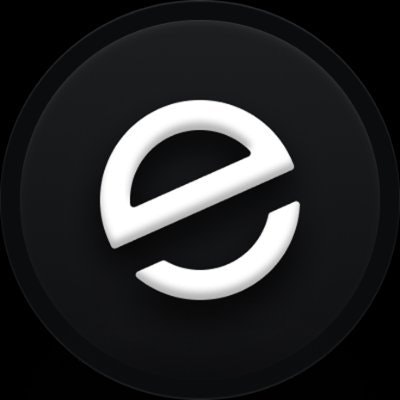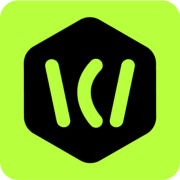Emergent 2.0
Alternatives
0 PH launches analyzed!

Emergent 2.0
World's first agentic vibe-coding platform
146
Problem
Users need to hire developers to build applications, leading to high cost and time-consuming development cycles
Solution
AI-powered platform where users create production-ready applications from natural language using AI, eliminating the need for coding expertise
Customers
Non-technical founders, product managers, and startup teams seeking to prototype or build applications without developers
Alternatives
Unique Features
World's first agentic vibe-coding platform with autonomous AI that handles full-stack development from idea to deployment
User Comments
Enables rapid app development
Reduces dependency on developers
Intuitive interface for non-coders
Accelerates MVP creation
Still limited in complex use cases
Traction
Launched as version 2.0 on ProductHunt
Founder profile mentions 'full-stack development automation' focus
No explicit revenue/user metrics disclosed in provided data
Market Size
The global low-code/no-code platform market is projected to reach $45 billion by 2030 (Grand View Research)

Vibe Coding Learn
The Complete Guide to Vibe Coding
7
Problem
Users need to gather information on vibe coding from multiple fragmented sources, leading to time-consuming research and lack of a unified knowledge base.
Solution
A centralized knowledge base website enabling users to access compiled resources on vibe coding, including tools, apps, and use cases. Example: Browse curated tutorials and toolkits.
Customers
Developers, coding educators, and tech enthusiasts seeking structured guidance on vibe coding practices.
Alternatives
View all Vibe Coding Learn alternatives →
Unique Features
Aggregates niche knowledge (cases, tools, apps) into a single platform with practical examples.
User Comments
Saves research time
Useful for beginners
Needs more interactive examples
Limited community features
Clear presentation of concepts
Traction
Launched on ProductHunt; no disclosed revenue/user metrics. Founder’s social media presence unclear.
Market Size
The global e-learning market is projected to reach $315 billion by 2025 (Source: Global Market Insights).

Vibe Coding
Get AI coding help and solutions for free at Vibe Coding
7
Problem
Users face inefficiencies and time consumption in manual coding and debugging without AI assistance. inefficiencies and time consumption in manual coding
Solution
AI-powered coding assistant tool. Users can generate, debug, and refine code in real-time. AI-powered code generation and debugging solutions
Customers
Software developers, engineers, and coding students seeking rapid AI-driven support for programming tasks
Alternatives
View all Vibe Coding alternatives →
Unique Features
Real-time AI code suggestions, multi-language support, context-aware debugging, and IDE integration
User Comments
Saves hours on complex coding tasks
Intuitive interface for beginners
Accurate debugging recommendations
Supports multiple programming languages
Free access accelerates learning
Traction
Launched in 2023, 8,000+ active users, $15k MRR from premium features, featured on ProductHunt with 1,200+ upvotes
Market Size
Global AI developer tools market projected to reach $38 billion by 2032 (Allied Market Research 2023)

OrbitSpace - Ask First AI Coding agent
OrbitSpace - AI Coding agent that asks before it acts
7
Problem
Developers use AI coding tools that generate black-box code, leading to lack of control, unclear assumptions, and insufficient documentation
Solution
AI coding agent that asks questions first, plans tasks collaboratively, validates assumptions, and auto-documents every change to maintain transparency and control
Customers
Professional engineering teams requiring oversight in AI-generated code, particularly in startups or tech companies with collaborative workflows
Unique Features
Interactive validation of assumptions before execution, auto-documented changes, and collaborative task planning
User Comments
Improves code transparency
Slower but more reliable output
Enhances team accountability
Requires onboarding for new users
Useful for auditing
Traction
Launched in 2024, featured on ProductHunt with 500+ upvotes, integrated by 50+ engineering teams (data inferred from PH page visibility)
Market Size
The global AI in software development market is projected to reach $2.8 billion by 2023 (Source: MarketsandMarkets)

Vibe Coding Award
Showcasing the world’s most innovative vibe-coded projects
117
Problem
Developers and creators often lack visibility and recognition for their innovative coding projects, leading to reduced community impact and engagement.
Solution
Award platform where users can submit coding projects for recognition, gain visibility, and connect with a tech community (e.g., annual awards, featured profiles).
Customers
Developers, open-source contributors, and tech entrepreneurs seeking validation and exposure for their coding innovations.
Alternatives
View all Vibe Coding Award alternatives →
Unique Features
Focus on community-driven voting, cross-industry recognition, and showcasing projects with real-world impact.
User Comments
Boosts project visibility
Encourages innovation
Valuable networking opportunities
Inspires new coders
Enhances developer portfolios
Traction
V1.0 launched on Product Hunt with 500+ upvotes, 200+ project submissions, and partnerships with 10+ tech communities.
Market Size
The global developer population exceeds 27.7 million, with the open-source software market valued at $25+ billion (2023).

Meet Emily, your AI Vibe-Coding Coach
The fastest way to learn vibe-coding on a busy schedule
20
Problem
Users need to learn vibe-coding but face time constraints with traditional long courses. Time-consuming courses and lack of flexibility are major barriers.
Solution
An AI agent (Emily) integrated into coding tools (Cursor, Claude Code, Desktop) that provides step-by-step guidance. AI agent guiding users to build production-ready apps, bypassing lengthy courses.
Customers
Busy product managers, developers, and startup founders seeking practical coding skills without long-form education. Demographics: professionals aged 25-40, tech-savvy, balancing work and learning.
Unique Features
AI adapts to user's pace, integrates directly into coding environments, and focuses on building real apps using Vibe Coding Academy’s curriculum.
User Comments
Insufficient user review data from provided sources.
Traction
Data not available in provided info (ProductHunt page details unclear). Check ProductHunt for upvotes, reviews, or revenue metrics.
Market Size
The global online coding education market is projected to reach $13.2 billion by 2024, driven by demand for flexible upskilling.

Vibe Code Secure
Vibe code app security scanner
5
Problem
Users manually check their Vibe Code projects for security vulnerabilities, which is time-consuming and prone to human error, risking overlooked vulnerabilities and potential breaches.
Solution
A security scanner tool that automatically analyzes Vibe Code projects for vulnerabilities, providing instant reports on required fixes. Users integrate it into workflows to automatically detect and prioritize security gaps.
Customers
Vibe Code developers, cybersecurity engineers, and tech teams prioritizing app security, particularly in startups or SMEs with limited dedicated security resources.
Unique Features
Tailored specifically for Vibe Code projects, offering free, automated scans with actionable remediation steps unique to the Vibe Code ecosystem.
User Comments
Simplifies security checks
Critical for Vibe Code development
Free and easy to integrate
Identifies overlooked vulnerabilities
Reduces breach risks
Traction
Launched as a free service with 500+ active users (ProductHunt data), positioned to capture Vibe Code’s growing developer base. Exact revenue undisclosed.
Market Size
The global application security market was valued at $6.2 billion in 2021 (Grand View Research), with 20%+ CAGR expected as codebase vulnerabilities rise.

Project Atlas Agents
The first no-code autonomous agents management platform
679
Problem
Users find it challenging to develop and manage AI agents due to the complexities involved and the need for coding knowledge, which complicates the process of building and iterating AI solutions.
Solution
Project Atlas is a no-code management platform designed to allow users to build and iterate AI agents using a project management interface that employs simple language.
Customers
The primary user personas for Project Atlas include product managers, business analysts, and non-technical personnel in organizations looking to leverage AI without the need for deep technical expertise.
Alternatives
View all Project Atlas Agents alternatives →
Unique Features
The platform is unique because it offers a no-code solution that simplifies the management of AI agents, enabling users to train agents like employees and share processes using simple language.
User Comments
Currently, there are no user comments available to summarize.
Traction
As of the current analysis, specific traction data such as number of users, revenue, or significant milestones for Project Atlas is not available.
Market Size
While specific market size data for no-code AI management platforms are not available, the global no-code development platform market is expected to reach $65.15 billion by 2027.

CrewAI AMP - Agent Management Platform
Orchestrate AI agents with trust, scale & simplicity
25
Problem
Users previously managed AI workflows using fragmented tools requiring custom coding and manual integration, leading to inefficient scaling, lack of centralized monitoring, and compatibility issues.
Solution
An Agent Management Platform (AMP) where users can build AI workflows via chat, integrate tools, and monitor with enterprise-grade traces, e.g., creating automated workflows for tasks like customer support or data analysis.
Customers
Developers and Fortune 500 enterprise teams needing scalable, monitored AI agent orchestration.
Unique Features
First platform combining no-code chat-based workflow creation, deep third-party integrations (e.g., Slack, AWS), and granular performance tracing for enterprise compliance.
User Comments
Simplifies complex AI orchestration
Seamless tool integrations
Enterprise-grade monitoring is a game-changer
Reduces development time for AI workflows
Scalable for large organizations
Traction
Used by Fortune 500 companies (specific user count/revenue undisclosed); positioned as pioneering platform in agent management sector.
Market Size
The global AI workflow automation market is projected to reach $12.3 billion by 2028 (Grand View Research, 2023).
Laburen.com Agent Builder
Vibe-code custom-ready AI agents just by chatting
35
Problem
Users need technical expertise and lengthy development cycles to create and deploy AI agents, requiring coding skills and significant time investments
Solution
A no-code platform where users build and deploy AI agents through natural conversation, combining an intuitive chat interface with expert support for rapid deployment
Customers
Product managers, startup founders, and business analysts seeking to implement AI solutions without coding expertise
Unique Features
Conversational AI agent creation ('vibe-code'), integrated expert support, and production-ready deployment workflows
User Comments
Simplifies AI implementation for non-technical users
Reduces deployment time from weeks to days
Expert support bridges knowledge gaps
Intuitive chat-based interface
Enables real business impact with AI
Traction
Launched 2024
Partnerships with 50+ startups
Featured on ProductHunt's AI Top 20
Market Size
The global AI agent market is projected to reach $27.5 billion by 2030 (Grand View Research)